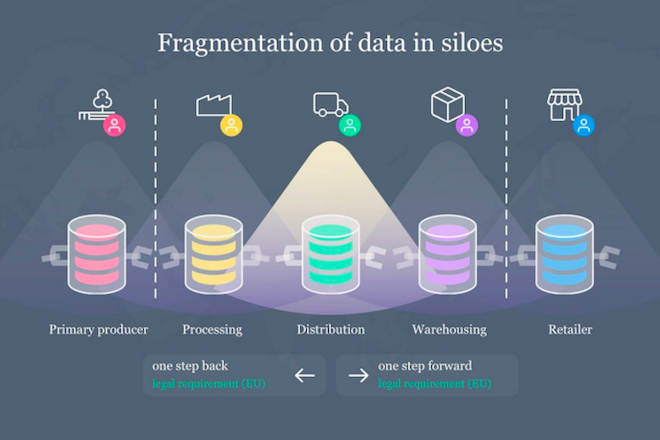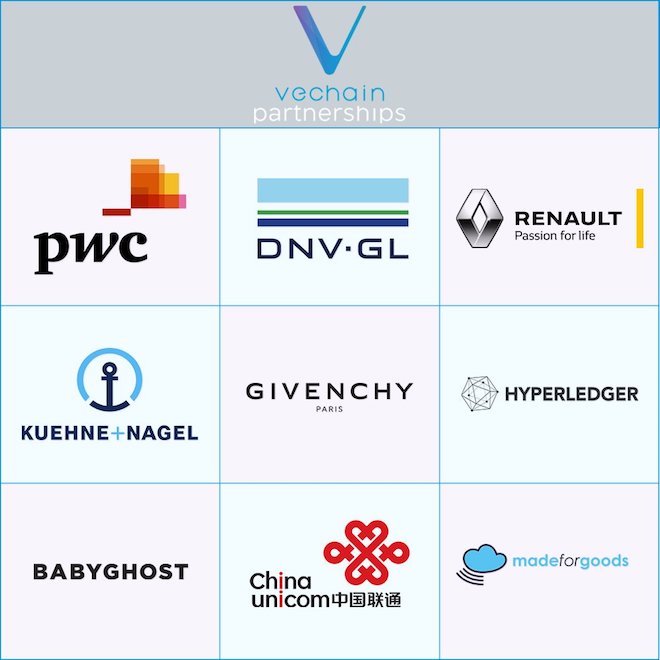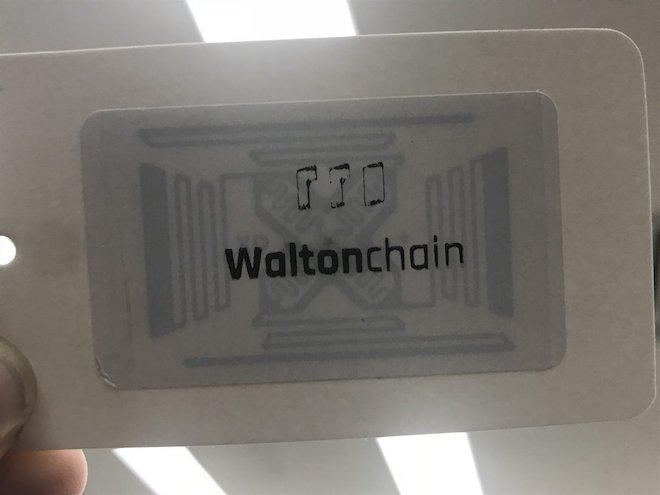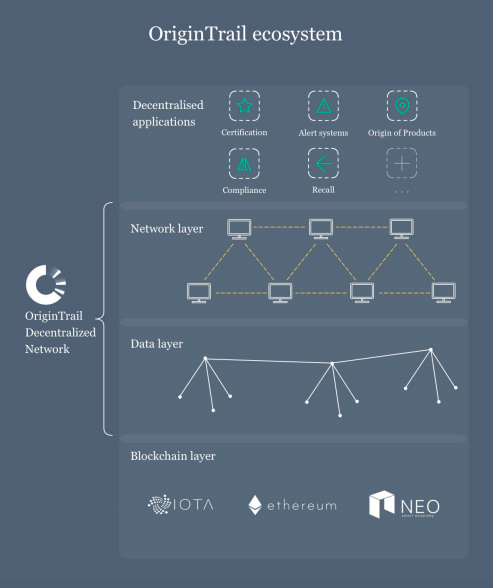Since the beginning of the industrial revolution, we’ve become more efficient at turning raw materials into products to sell around the world.
Combining improvements in manufacturing with growing trade from globalization has lead to an increasingly more complex global supply chain to emerge. Managing the various supply chains is a big business.
The supply chain management industry is massive and experiencing double-digit growth year year after year. According to Gartner, the Supply Chain Management (SCM) market will exceed $19 billion in total software sales by 2021.
While globalization has some downsides, the reality is it enables a plethora of products being delivered around the world at a lower cost, which has led to a massive increase in the quality of life of the average citizen.
However, it turns out it’s really hard to manage an increasingly complex global supply chain.
Current Problems with the Supply Chain Management (SCM) Industry
1. Current SCM technology is archaic.
The technologies used to manage supply chains are falling behind the growing interconnectedness and complexities of our global world. This presents an opportunity for innovators to create value in the SCM industry.
2. Stakeholders cannot maintain an adequate overview of their supply chain networks.

Within a given supply chain, data is fragmented into various “data silos” where very little data interoperability exists. In other words, there is high “information asymmetry” and stakeholders have no incentive to share data. This makes it harder to ensure integrity of products as they flow through the supply chain. Challenges include: fighting contamination, reducing counterfeiting, and maintaining an efficient supply chain.
This disproportionately hurts the consumer, the environment, and companies who actually participate in honest and sustainable production methods.
3. End consumers are demanding ever-higher levels of transparency.
Consumers want to know the origins of their products, how environmentally conscious they are, and if the company used “fair trade” practices. This puts added pressure on the supply chain stakeholders.
How Blockchain (and IoT) Can Support the Supply Chain Industry
The biggest problems with the supply chain management industry can be addressed by improving access to data for all stakeholders in a trust-minimized way.
From the Ambrosus whitepaper:
Until now, it has been difficult to gather accurate data about the state and integrity of materials and products along the whole supply chain. Even where data is available, it is challenging to collect it, aggregate it, disseminate it and, above all, ensure its accuracy and integrity.
Technology to the Rescue?
A combination of blockchain technology, smart contract applications, and integrated Internet of Things (IoT) sensors allow us to reimagine the core systems we use to manage our global supply chains.
This Reddit post does a great job explaining how a blockchain solution such as WTC improves supplychain management.
This new technologically driven vision might include:
- End consumers can view the entire lifecycle of a product before it hits the shelf
- Improved efficiency of global trade
- Minimized fraud/counterfeiting due to quality assurance sensors tracking location of materials in a supply chain
A Big Challenge Remains: The “Oracle Problem”
It’s great that blockchains can store immutable data in a censorship-resistant, tamper-evident way. This makes blockchains useful at securing and transporting digitally native tokens.
However, it’s unsure if or how we’ll be able to digitally represent physical assets in a trust-minimized way. How do you verify the authenticity of the data that’s being input to the blockchain?
There’s still a lot of work to be done. That being said, I have no doubt we’ll see distributed ledger technology (of some sort) lead to dramatic improvements in the SCM space.
5 Blockchain Projects Leading The Decentralized Supply Chain Management Revolution
It’s not a competition (yet).
All of these projects seek to fix the general pain points in the supply chain industry: information asymmetry between stakeholders, lack of transparency, and no data sharing standards or protocols.
The differences lie in their geographic location and their unique approach to solving the same problem. While some projects have their own blockchain, others are blockchain agnostic data transport protocols. In some cases, these projects can actually compliment each other.
The blockchain + supply chain industry is just getting started. As it matures, we might see increased competition that leads to consolidation. However, for now it’s in everyone’s best interest for “competitors” to share information and work towards interoperability of data standards.
Let’s take a look at 5 blockchain projects focused on the supply chain industry. Projects are listed in order of market cap (highest to lowest) at the time of writing.
1. VeChain (VET)
Project Overview
You can’t talk about the blockchain-powered supply chain industry without mentioning VeChain. VeChain was started in 2015 and has gone through multiple rebranding efforts. If you’re new to VeChain, start with this introduction to VeChain.
VeChain makes it easy and safe for manufacturers to share product data with vendors and consumers. This “360-degree view” of the supply chain both informs the parties responsible for bringing the product to market and guarantees consumers are receiving what they paid for.
According to the team, they recently announced they have over 180 different potential use cases for their technology and growing.
VeChain runs on “Proof of Authority” which has been criticized recently for poor economic incentive models and a tendency to centralize.
The Case for VET
VeChain is a full enterprise platform that enables community members to launch dapps on the network. They’ve secured many tier 1 partnerships such as PwC and DNV GL. Lastly, VET has a massive following online which is helpful for bootstrapping decentralized communities.
VeChain is connected to the largest infrastructure project in human history, China’s One Belt One Road initiative.
Current Status
VeChain is in the process of swapping tokens over to the mainnet. The team just announced they partnered with DNV GL to solve china’s drug and vaccine traceability problems. They also updated their mobile wallet.
2. Waltonchain (WTC)
Project Overview
Founded in November 2016, Waltonchain is a Chinese-Korean project that combines both hardware (RFID chips) and software (blockchain) to create a general purpose technology they’re calling the Value Internet of Things (VIoT).
Blockchain is being used here to enable different parties to collaborate in the supply chain without trusting the counterparty.
The RFID chips that Waltonchain manufacturers are designed to store information about the physical assets they’re attached to. The team also developed a scanner that reads data off the RFID chips and uploads data directly onto the blockchain. Both the RFID chips and scanners are patented technology.
The image below shows the chip WaltonChain will be using in their “unmanned retail store.”

The Case for WTC
Waltonchain has a massive team that draws industry experience from both the hardware and software businesses. They’ve proven their expertise by producing an RFID-capable chip that’s smaller than 1mm and costs around 5 cents per unit.
The VIoT technology they’re producing is really powerful and goes way beyond just supply chain related endeavors.
When we consider the hardware + software integration expertise, a diverse set of potential use cases, and tight integration with the Chinese government, WaltonChain appears to be a very defensible business.
Along with VeChain, Waltonchain is tightly connected to China’s $1 trillion infrastructure project, One Belt One Road.
Based on my research, WTC is best long-term investment in the supply chain sector.
Current Status
The RFID chips are ready for production. Mainnet went live on March 31, 2018. You can download their wallet for PC, Android, or iOS. They plan to launch their first “unmanned smart retail store” in September 2018. The team just announced they’ll be releasing an updated whitepaper “soon.”
This article summarizes recent achievements of Waltonchain.
3. Ambrosus (AMB)
Project Overview
Founded in 2016, Ambrosus is a blockchain and IoT project mainly focused on two industries: food and pharma. They’re developing a decentralized protocol on top of Ethereum that will be officially live by the end of October. Ambrosus recently released their SDK which enables developers to build dapps on top of Ambrosus.
According to their whitepaper, Amborus is:
Envisioning a smarter, healthier and transparent food and pharma ecosystem connecting producers, retailers, consumers and markets though distributed apps, sensors, automation and blockchain based data revolution.
Ambrosus uses a combination of sensors, RFID chips, and QR codes to track movement, temperature, and tampering. The data is then uploaded to blockchain for security and to share data among counterparties in a trust-minimized way.
The four main components of their platform include:
- Supply Chain optimization
- Logistic Tracking
- Quality Assurance
- Anti-Counterfeiting
The Amber token (AMB) is mainly used as the gas to power the network. For example, network participants could spend AMB in order to acquire valuable data about a specific product/process in the supply chain.
Ambrosus is focused on the data interoperability aspect of their protocol. This enables counterparties in a supply chain to efficiently share sensitive data which enables a full view of the entire ecosystem. More data visibility means everyone in the supply chain wins.
The Case for AMB
Most of the projects listed here are focused on the Asian market, while Ambrosus is based out of Switzerland and is targeting the European market. However, Ambrosus does compete with Modum (MOD) in Europe. Switzerland is very innovative—2 of the top 5 pharma companies in the world are based in there, and it’s one of the most crypto-friendly nations in the world.
Ambrosus has close ties with the Swiss government through funding from the Swiss Canton of Vaud Government, a joint research lab in Lausanne, and they were recently endorsed by the Swiss Quality and Safety Association.
Compared to other supply chain projects, Ambrosus appears to be specializing in more accurate data and measurements of products. This is important for their niche of pharma, chemicals, and food.
Current Status
On July 31st, 2018, Ambrosus launched the AMB-NET which is a sandbox environment of their decentralized protocol. They have also started to onboard masternodes into the network. The mainnet is scheduled to launch in October 2018.
4. OriginTrail (TRAC)
Project Overview
Surprisingly, OriginTrail has been around since 2013, although they only recently launched their TRAC token in January 2018.
The team believes the best solution for the supply chain industry is an “off-chain decentralized p2p network” which they call the OriginTrail Decentralized Network (ODN). This enables peers on the network to “negotiate services, transfer, process and retrieve data, verify its integrity and availability and reimburse the provider nodes.”
Interestingly, OriginTrail is blockchain agnostic, meaning they can run their protocol on theoretically any blockchain. However, the team is starting with Ethereum.
The team decided to run their protocol “off chain” in order to:
- Reduce cost and inefficiency by minimizing the amount of data stored on the blockchain
- Stay flexible as blockchain technology is immature and will likely change and evolve over time.
They’re starting with the food industry and expanding to the greater supply chain, logistics, compliance, shipping, and other related industries.

The Case for TRAC
Staying blockchain agnostic is unique among decentralized tokenized networks. Most other blockchain projects in the supply chain space are run on Ethereum or have built their own blockchain. What happens if a company’s proprietary blockchain technology becomes vulnerable or if Ethereum becomes obsolete? It appears the OriginTrail team believes they’ve insulated themselves from the blockchain layer of “platform risk.”
Interestingly, most of the projects mentioned in this article could leverage the TRAC protocol in order to ensure data interoperability of their supply chain.
The team leverages “Zero Knowledge Proofs” (ZK-SNARKS) to protect sensitive data.
OriginTrail was recently named one of five “penny cryptos set to explode.“
Current Status
The first version of the OriginTrail solution is currently deployed in the food industry. According to the team, “the upcoming open source version will be suitable to any product supply chain such as automotive, consumer goods, pharmaceutical, etc.” Read about OriginTrail’s current live use cases and pilot projects on their website.
Currently the decentralized mainnet launch is scheduled for Q3 2018. TRAC token holders are able to vote on up to 30 projects to launch on the network by the end of 2018.
5. Tael (WABI)
Project Overview
The WABI token was created by Chinese-based company Techrock (previously Walimai) that develops solutions to ensure consumer product authenticity by placing anti-counterfeit labels on consumer products. Consumers then purchase Techrock-secured goods with WABI tokens in participating stores.
The genesis of Techrock stems from the 2008 Chinese milk scandal that killed 6 infants and hospitalized over 50,000. The team’s goal is to prevent consumers from death or serious hardship due to these counterfeit goods.
Techrock operates mainly in China, where counterfeit products such as baby formula, cosmetics, and alcohol are a big deal.
The team created labels that are RFID chips and scannable QR codes. This enables consumers to scan the label of an item before purchasing to ensure the product has not been tampered with. If the geolocation data of a specific product does not match its intended route, the customer will be alerted to avoid the product, and the manufacturer will be alerted of the issue.
The Case for WABI
The Techrock team is selling the “peace of mind” that you can purchase important things like baby food without risks of getting hurt from counterfeit goods. This is a powerful value proposition to mothers with infants to take care of.
Unlike many projects, Tael already has a working product being used in retail stores in China. You can download their app in all places where apps are sold in China.
The use case of the WABI token is a concern. As far as I can tell it’s only used to purchase “Tael secure products” in a glorified loyalty rewards program. It’s quite possible that the WABI token is not needed and it will not capture value.
Current Status
Tael labels are live and currently being used in the liquor, baby food, and cosmetic industries.
Techrock, the company behind Tael, is a company that develops solutions to ensure product authenticity. It places secure anti-counterfeit labels on consumer products in China and internationally.
In order to solve this problem and provide confidence for consumers, the company has developed RFID labels with an anti-reuse design, as well as mobile apps that integrate with the labels.
Investing in the Supply Chain Space
The supply chain industry could be the first to adopt blockchain technology on a meaningful scale. If this does happen, several of the projects above will likely be responsible.
The question is, where will value accumulate? Will the SCM industry be a winner takes all or will multiple projects share the space? Will the current projects solve the issues the industry is facing? Or is the real innovation yet to come?
The leaders in the space are well capitalized, have strong teams, lots of industry partnerships (lol), and appear to have promising tech. However there is very little actual value being created at this point.
There isn’t a clear winner and the supply chain space is becoming more crowded with new blockchain-focused projects popping up all the time.
Regardless, the future is bright and available for the taking.
Which projects do you like in the supply chain management space?
Disclaimer: This is not intended to be financial advice. Please do your own research. Author currently holds a position in WTC.
Related: 4 Blockchain Projects Leading the Smart City Revolution

